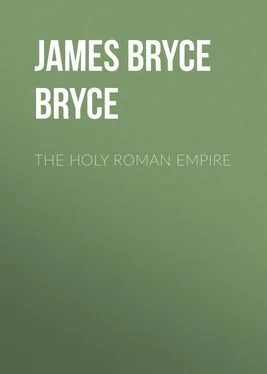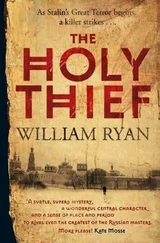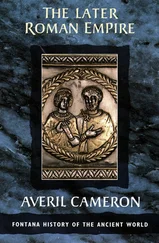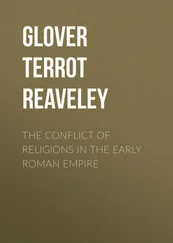James Bryce - The Holy Roman Empire
Здесь есть возможность читать онлайн «James Bryce - The Holy Roman Empire» — ознакомительный отрывок электронной книги совершенно бесплатно, а после прочтения отрывка купить полную версию. В некоторых случаях можно слушать аудио, скачать через торрент в формате fb2 и присутствует краткое содержание. Жанр: foreign_antique, foreign_prose, Историческая проза, на английском языке. Описание произведения, (предисловие) а так же отзывы посетителей доступны на портале библиотеки ЛибКат.
- Название:The Holy Roman Empire
- Автор:
- Жанр:
- Год:неизвестен
- ISBN:нет данных
- Рейтинг книги:4 / 5. Голосов: 1
-
Избранное:Добавить в избранное
- Отзывы:
-
Ваша оценка:
- 80
- 1
- 2
- 3
- 4
- 5
The Holy Roman Empire: краткое содержание, описание и аннотация
Предлагаем к чтению аннотацию, описание, краткое содержание или предисловие (зависит от того, что написал сам автор книги «The Holy Roman Empire»). Если вы не нашли необходимую информацию о книге — напишите в комментариях, мы постараемся отыскать её.
The Holy Roman Empire — читать онлайн ознакомительный отрывок
Ниже представлен текст книги, разбитый по страницам. Система сохранения места последней прочитанной страницы, позволяет с удобством читать онлайн бесплатно книгу «The Holy Roman Empire», без необходимости каждый раз заново искать на чём Вы остановились. Поставьте закладку, и сможете в любой момент перейти на страницу, на которой закончили чтение.
Интервал:
Закладка:
Christianity.
For that nationality was now beginning to be supported by a new and vigorous power. The Emperors had indeed opposed it as disloyal and revolutionary: had more than once put forth their whole strength to root it out. But the unity of the Empire, and the ease of communication through its parts, had favoured the spread of Christianity: persecution had scattered the seeds more widely, had forced on it a firm organization, had given it martyr-heroes and a history. When Constantine, partly perhaps from a genuine moral sympathy, yet doubtless far more in the well-grounded belief that he had more to gain from the zealous sympathy of its professors than he could lose by the aversion of those who still cultivated a languid paganism, took Christianity to be the religion of the Empire, it was already a great political force, able, and not more able than willing, to repay him by aid and submission.
Its alliance with the State.
Yet the league was struck in no mere mercenary spirit, for the league was inevitable. Of the evils and dangers incident to the system then founded, there was as yet no experience: of that antagonism between Church and State which to a modern appears so natural, there was not even an idea. Among the Jews, the State had rested upon religion; among the Romans, religion had been an integral part of the political constitution, a matter far more of national or tribal or family feeling than of personal 4 4 In the Roman jurisprudence, ius sacrum is a branch of ius publicum .
. Both in Israel and at Rome the mingling of religious with civic patriotism had been harmonious, giving strength and elasticity to the whole body politic. So perfect a union was now no longer possible in the Roman Empire, for the new faith had already a governing body of her own in those rulers and teachers whom the growth of sacramentalism, and of sacerdotalism its necessary consequence, was making every day more powerful, and marking off more sharply from the mass of the Christian people. Since therefore the ecclesiastical organization could not be identical with the civil, it became its counterpart. Suddenly called from danger and ignominy to the seat of power, and finding her inexperience perplexed by a sphere of action vast and varied, the Church was compelled to frame herself upon the model of the secular administration. Where her own machinery was defective, as in the case of doctrinal disputes affecting the whole Christian world, she sought the interposition of the sovereign; in all else she strove not to sink in, but to reproduce for herself the imperial system. And just as with the extension of the Empire all the independent rights of districts, towns, or tribes had disappeared, so now the primitive freedom and diversity of individual Christians and local Churches, already circumscribed by the frequent struggles against heresy, was finally overborne by the idea of one visible catholic Church, uniform in faith and ritual; uniform too in her relation to the civil power and the increasingly oligarchical character of her government. Thus, under the combined force of doctrinal theory and practical needs, there shaped itself a hierarchy of patriarchs, metropolitans, and bishops, their jurisdiction, although still chiefly spiritual, enforced by the laws of the State, their provinces and dioceses usually corresponding to the administrative divisions of the Empire. As no patriarch yet enjoyed more than an honorary supremacy, the head of the Church – so far as she could be said to have a head – was virtually the Emperor himself. The inchoate right to intermeddle in religious affairs which he derived from the office of Pontifex Maximus was readily admitted; and the clergy, preaching the duty of passive obedience now as it had been preached in the days of Nero and Diocletian 5 5 Tertullian, writing circ. A.D. 200, says: 'Sed quid ego amplius de religione atque pietate Christiana in imperatorem quem necesse est suspiciamus ut eum quem Dominus noster elegerit. Et merito dixerim, noster est magis Cæsar, ut a nostro Deo constitutus.' — Apologet. cap. 34.
, were well pleased to see him preside in councils, issue edicts against heresy, and testify even by arbitrary measures his zeal for the advancement of the faith and the overthrow of pagan rites. But though the tone of the Church remained humble, her strength waxed greater, nor were occasions wanting which revealed the future that was in store for her. The resistance and final triumph of Athanasius proved that the new society could put forth a power of opinion such as had never been known before: the abasement of Theodosius the Emperor before Ambrose the Archbishop admitted the supremacy of spiritual authority. In the decrepitude of old institutions, in the barrenness of literature and the feebleness of art, it was to the Church that the life and feelings of the people sought more and more to attach themselves; and when in the fifth century the horizon grew black with clouds of ruin, those who watched with despair or apathy the approach of irresistible foes, fled for comfort to the shrine of a religion which even those foes revered.
It embraces and preserves the imperial idea.
But that which we are above all concerned to remark here is, that this church system, demanding a more rigid uniformity in doctrine and organization, making more and more vital the notion of a visible body of worshippers united by participation in the same sacraments, maintained and propagated afresh the feeling of a single Roman people throughout the world. Christianity as well as civilization became conterminous with the Roman Empire 6 6 See the book of Optatus, bishop of Milevis, Contra Donatistas . 'Non enim respublica est in ecclesia, sed ecclesia in republica, id est, in imperio Romano, cum super imperatorem non sit nisi solus Deus:' (p. 999 of vol. ii. of Migne's Patrologiæ Cursus completus .) The treatise of Optatus is full of interest, as shewing the growth of the idea of the visible Church, and of the primacy of Peter's chair, as constituting its centre and representing its unity.
.
CHAPTER III.
THE BARBARIAN INVASIONS
The Barbarians.
Upon a world so constituted did the barbarians of the North descend. From the dawn of history they shew as a dim background to the warmth and light of the Mediterranean coast, changing little while kingdoms rise and fall in the South: only thought on when some hungry swarm comes down to pillage or to settle. It is always as foes that they are known. The Romans never forgot the invasion of Brennus; and their fears, renewed by the irruption of the Cimbri and Teutones, could not let them rest till the extension of the frontier to the Rhine and the Danube removed Italy from immediate danger. A little more perseverance under Tiberius, or again under Hadrian, would probably have reduced all Germany as far as the Baltic and the Oder. But the politic or jealous advice of Augustus 7 7 'Addiderat consilium coercendi intra terminos imperii.' – Tac. Ann. i. 2.
was followed, and it was only along the frontiers that Roman arts and culture affected the Teutonic races. Commerce was brisk; Roman envoys penetrated the forests to the courts of rude chieftains; adventurous barbarians entered the provinces, sometimes to admire, oftener, like the brother of Arminius 8 8 Tac. Ann. ii. 9.
, to take service under the Roman flag, and rise to a distinction in the legion which some feud denied them at home. This was found even more convenient by the hirer than by the employed; till by degrees barbarian mercenaries came to form the largest, or at least the most effective, part of the Roman armies.
Admitted to Roman titles and honours.
The body-guard of Augustus had been so composed; the prætorians were generally selected from the bravest frontier troops, most of them German; the practice could not but increase with the extinction of the free peasantry, the growth of villenage, and the effeminacy of all classes. Emperors who were, like Maximin, themselves foreigners, encouraged a system by whose means they had risen, and whose advantages they knew. After Constantine, the barbarians form the majority of the troops; after Theodosius, a Roman is the exception. The soldiers of the Eastern Empire in the time of Arcadius are almost all Goths, vast bodies of whom had been settled in the provinces; while in the West, Stilicho 9 9 Stilicho, the bulwark of the Empire, seems to have been himself a Vandal by extraction.
can oppose Rhodogast only by summoning the German auxiliaries from the frontiers. Along with this practice there had grown up another, which did still more to make the barbarians feel themselves members of the Roman state. Whatever the pride of the old republic might assert, the maxim of the Empire had always been that birth and race should exclude no subject from any post which his abilities deserved. This principle, which had removed all obstacles from the path of the Spaniard Trajan, the Pannonian Maximin, the Numidian Philip, was afterwards extended to the conferring of honour and power on persons who did not even profess to have passed through the grades of Roman service, but remained leaders of their own tribes. Ariovistus had been soothed by the title of Friend of the Roman People; in the third century the insignia of the consulship 10 10 Of course not the consulship itself, but the ornamenta consularia .
were conferred on a Herulian chief: Crocus and his Alemanni entered as an independent body into the service of Rome; along the Rhine whole tribes received, under the name of Laeti, lands within the provinces on condition of military service; and the foreign aid which the Sarmatian had proffered to Vespasian against his rival, and Marcus Aurelius had indignantly rejected in the war with Cassius, became the usual, at last the sole support of the Empire, in civil as well as in external strife.
Интервал:
Закладка:
Похожие книги на «The Holy Roman Empire»
Представляем Вашему вниманию похожие книги на «The Holy Roman Empire» списком для выбора. Мы отобрали схожую по названию и смыслу литературу в надежде предоставить читателям больше вариантов отыскать новые, интересные, ещё непрочитанные произведения.
Обсуждение, отзывы о книге «The Holy Roman Empire» и просто собственные мнения читателей. Оставьте ваши комментарии, напишите, что Вы думаете о произведении, его смысле или главных героях. Укажите что конкретно понравилось, а что нет, и почему Вы так считаете.












